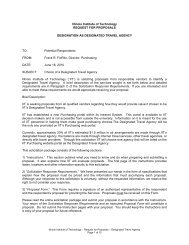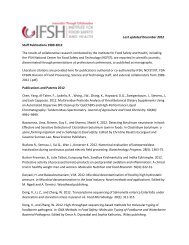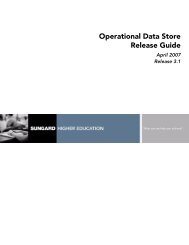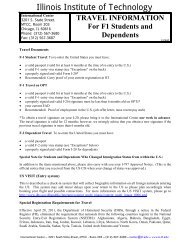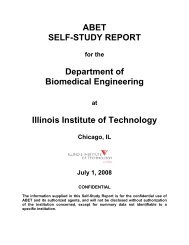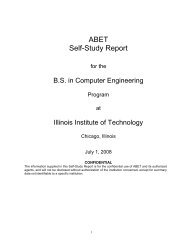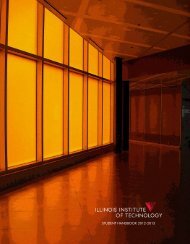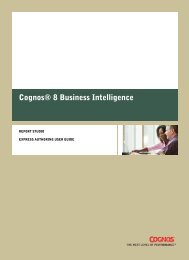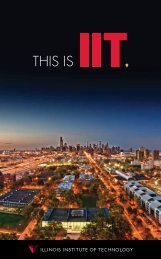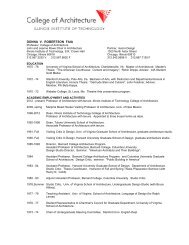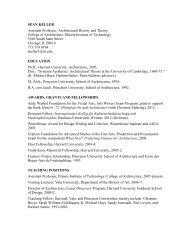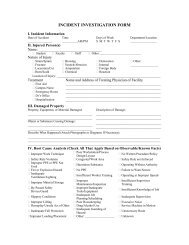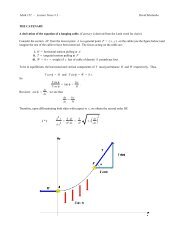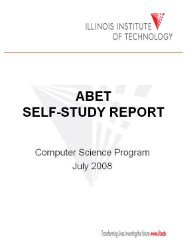Undergraduate Bulletin - Illinois Institute of Technology
Undergraduate Bulletin - Illinois Institute of Technology
Undergraduate Bulletin - Illinois Institute of Technology
You also want an ePaper? Increase the reach of your titles
YUMPU automatically turns print PDFs into web optimized ePapers that Google loves.
<strong>Undergraduate</strong> Curricula<br />
General Education Requirements<br />
The general education program is designed to ensure that<br />
all IIT graduates have a basic understanding <strong>of</strong> certain essential<br />
areas <strong>of</strong> knowledge. The general education program<br />
sets minimal requirements. Most degree programs require<br />
additional courses in these areas. These additional course<br />
requirements may be found in the departmental listings.<br />
General education requirements will not be waived. Substitutions<br />
may be considered upon written request to the<br />
Office <strong>of</strong> <strong>Undergraduate</strong> Academic Affairs. Approval will<br />
be granted only to individual students and then, only under<br />
extraordinary circumstances.<br />
A. Writing and Communications<br />
IIT recognizes the importance <strong>of</strong> critical thinking,<br />
writing, and oral communication in all academic pursuits<br />
and in pr<strong>of</strong>essional practice. IIT is therefore<br />
committed to a campus-wide program that engages<br />
students in the practice <strong>of</strong> written and oral communication<br />
in all disciplines. This program includes the<br />
following components:<br />
1. Students who have not received transfer or AP<br />
credit for COM 101 at IIT must take the IIT<br />
English Pr<strong>of</strong>iciency Examination before beginning<br />
classes at IIT. Within their first year at<br />
IIT, students who do not pass the IIT English<br />
Pr<strong>of</strong>iciency Examination must demonstrate basic<br />
writing pr<strong>of</strong>iciency by passing a composition<br />
course at IIT. This requirement applies to all<br />
students enrolling for an undergraduate degree.<br />
2. Students must complete a minimum <strong>of</strong> 42 credit<br />
hours <strong>of</strong> courses with a significant written and<br />
oral communication component, identified with<br />
a (C) in this bulletin, with a minimum distribution<br />
as follows:<br />
15 hours in major courses.<br />
15 hours in non-major courses.<br />
Full-time students should enroll in two (C)-<br />
designated courses, and part-time students<br />
should enroll in one (C)-designated course each<br />
academic year.<br />
3. Students must seek help from the IIT Writing<br />
Center (see page 281) when referred by course<br />
instructors or academic advisors.<br />
B. Mathematics: Five credit hours<br />
The five credit hours must be <strong>of</strong> MATH 119 or above.<br />
BUS 221 and PSYC 203 also satisfy this requirement.<br />
C. Computer Science: Two credit hours<br />
All students must take CS 104, 105, 110, 115, 116,<br />
201, ARCH 125, ITM 311, or a computer science<br />
course at the 200-level or above.<br />
D. Humanities and Social or Behavioral Sciences:<br />
21 credit hours, subject to minimum requirements in<br />
each area as specified below:<br />
1. Humanities: a minimum <strong>of</strong> nine credit hours.<br />
Courses that satisfy this requirement are<br />
marked with an (H) in this bulletin. The<br />
courses must be distributed as follows:<br />
(a) All students must take HUM 102, 104, or<br />
106.<br />
(b) At least two courses marked with an<br />
(H) at the 300-level or above. Students<br />
may use foreign language courses at the<br />
intermediate- and advanced-level to fulfill<br />
300-level requirements.<br />
2. Social or Behavioral Sciences: a minimum <strong>of</strong><br />
nine credit hours. Courses that satisfy this requirement<br />
are marked with an (S) in this bulletin.<br />
The courses must be distributed as follows:<br />
(a) At least one course at the 300-level or<br />
above.<br />
(b) Courses from at least two different fields.<br />
(c) At least six credits in a single field.<br />
E. Natural Science or Engineering:<br />
11 credit hours<br />
This component may be satisfied by courses in engineering,<br />
biology, chemistry and physics, or by courses<br />
in architecture and psychology marked with an (N).<br />
These courses must be distributed as follows:<br />
1. Two sequential natural science or engineering<br />
courses in a single field. (CHEM 124 with<br />
MS 201 satisfies this requirement.)<br />
2. At least one natural science or engineering<br />
course in a second area.<br />
F. Introduction to the Pr<strong>of</strong>ession:<br />
Two credit hours<br />
All students must complete these courses in their<br />
first year. Students entering with 30 hours or more<br />
<strong>of</strong> transfer credit may have this requirement waived<br />
with departmental approval. If waived, the total<br />
credit hours required for the degree must still be satisfied.<br />
G. Interpr<strong>of</strong>essional Projects (IPRO):<br />
Six credit hours<br />
Students will participate in at least two Interpr<strong>of</strong>essional<br />
Project experiences. These projects develop<br />
communication, teamwork, and leadership skills, as<br />
well as an awareness <strong>of</strong> economic, marketing, ethical,<br />
and social issues within the framework <strong>of</strong> a multidisciplinary<br />
team project. The project teams will be integrated<br />
across academic programs and at different<br />
levels within programs. Students who complete an<br />
ROTC minor are exempt from one <strong>of</strong> the two IPRO<br />
requirements.<br />
25



